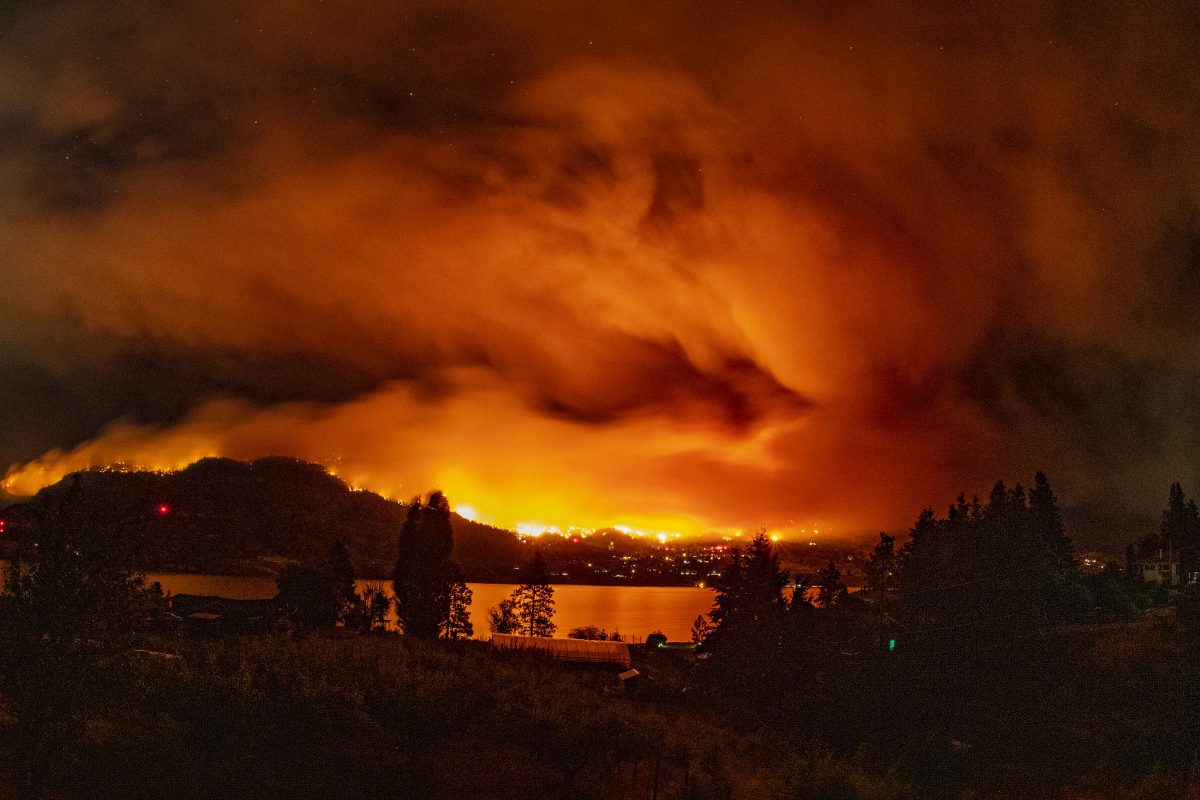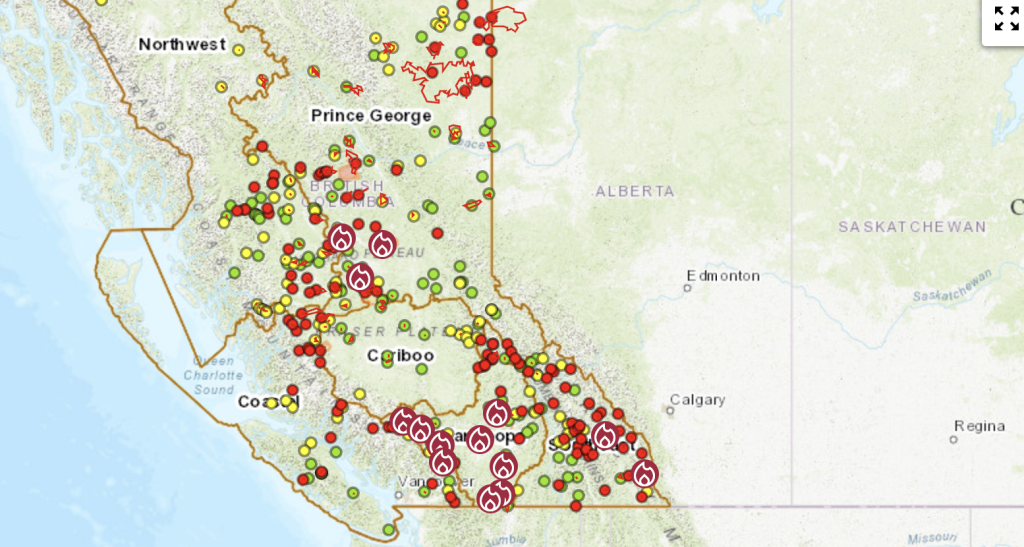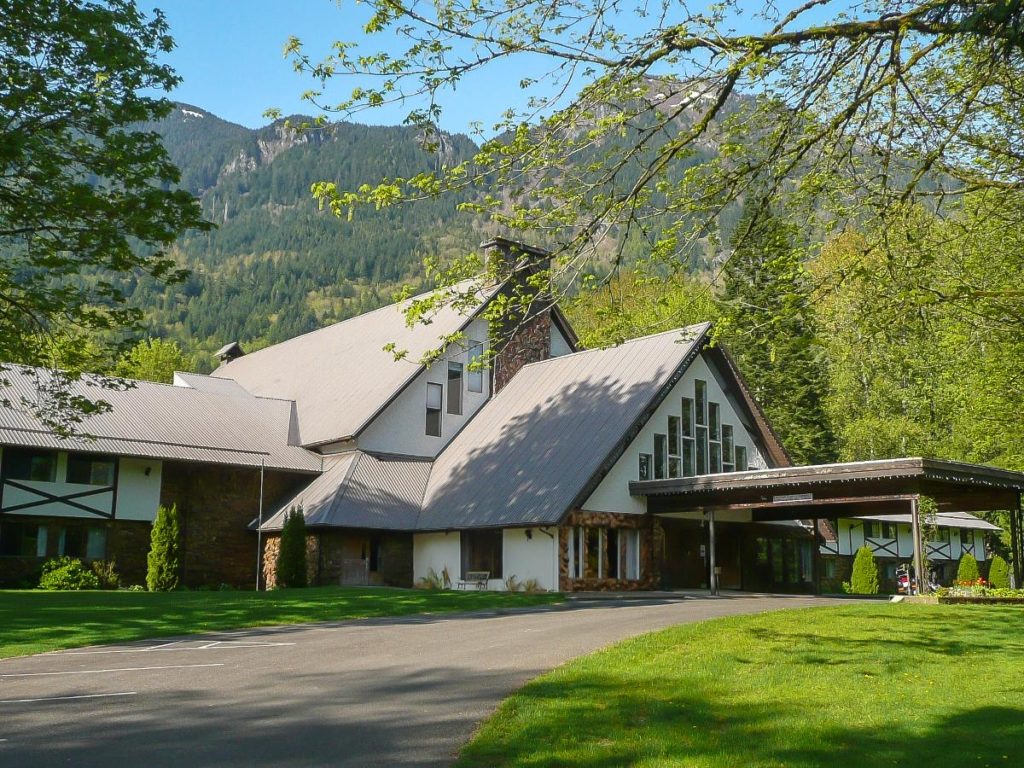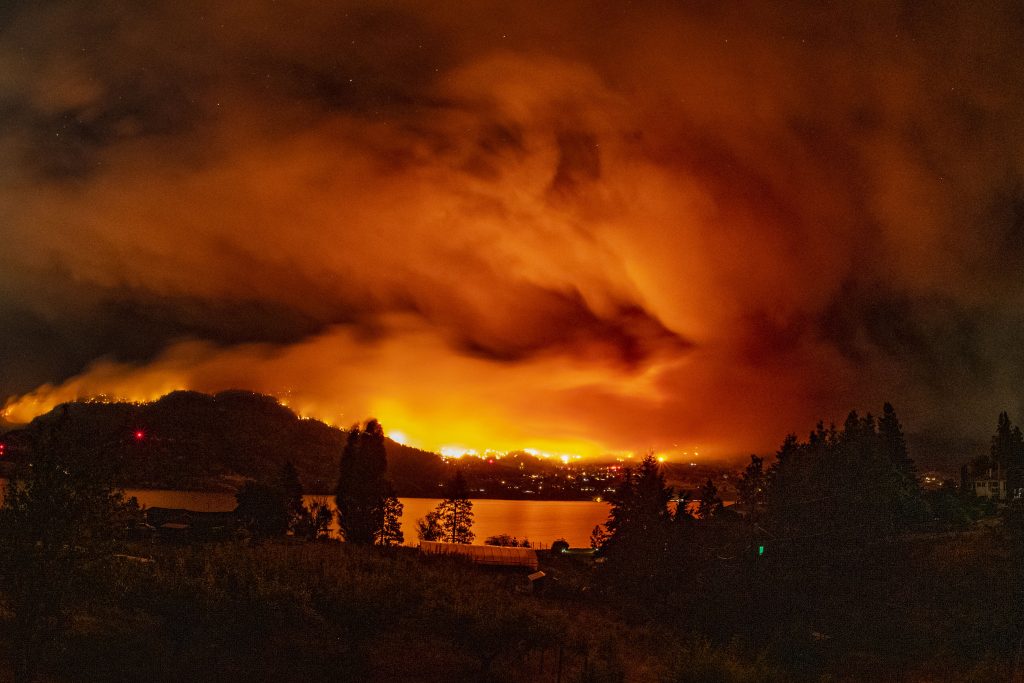2023 has marked the most devastating wildfire season in Canadian history.

With roughly 40 percent of its land covered in forests, Canada is no stranger to annual wildfires, particularly in its western regions. However, 2023 has marked the most devastating wildfire season in recorded Canadian history, spanning east to west and causing significant air quality issues and hazy skies across Canada and the United States.
Since wildfire season began in April, fires have ravaged British Columbia, Alberta, Yukon, and the Northwest Territories in the west, and Ontario, Quebec, and Nova Scotia in the east. In May, Alberta was the hardest-hit province, with 110 active fires. For perspective, an average of 800 hectares (around 1,980 acres) of land are typically burned during an Alberta wildfire season, but more than 1.9 million hectares (4.7 million acres) had already been consumed by late August this year. And just as firefighters from Ontario and Quebec seemed to be taming the flames in Alberta, wildfires broke out in Quebec, sparking a crisis in the east.
This year’s wildfires have scorched more than 151,000 square kilometers (58,500 square miles) of land, and 200,000 Canadians have had to evacuate their homes. In late August, more than 1,000 fires are burning across Canada.
Amid these natural disasters, ADRA Canada has been collaborating with local churches to provide supplies and funding as needed.
Nationwide Call to Prayer for the Latest Wildfire Crisis
The most recent wave of wildfires has swept through British Columbia, Yukon, and the Northwest Territories, with roughly 230 active wildfires in the Northwest Territories and nearly 400 wildfires in British Columbia. Moreover, 30,000 people in that province are under evacuation orders, with another 35,000 on evacuation alert, and 20,000 people were ordered to evacuate in the Northwest Territories.
Paul Llewellyn, president of the Seventh-day Adventist Church in Canada, and Steve Matthews, executive director of ADRA Canada, urged ADRA supporters and churches nationwide to pray for the British Columbia Conference territory on Saturday (Sabbath), August 19. They wrote:
“Let us open our hearts and pray for divine intervention, strength, comfort, and resilience for those directly impacted by these fires and wisdom for those combating this disaster on the front lines.”
Matthews added, “Evacuations are taking place at a dangerously rapid rate, and our prayers are needed for protection and safety.” He also pledged ADRA Canada’s ongoing support “to help ease the suffering of those escaping the wildfires, providing aid and support to those affected, showing that in times of crisis, humanity’s strength shines brightest.”
A statement from Llewellyn and Charles Aguilar, president of the Manitoba-Saskatchewan Conference of the Adventist Church, asked each member to unite in fervent prayer. “As we seek to understand the situation better, it’s crucial to remember that natural disasters like these are a stark reminder of our shared responsibility toward our planet and each other.” The statement concluded, “Your prayers matter and can make a significant difference.”
Local Churches Rally in Time of Need
In an email to local pastors, principals, and departmental directors, British Columbia Conference president Brad Thorp encouraged them to be proactive in determining and meeting the needs of their immediate communities, whether those needs are food, shelter, or other support. He further suggested that temporary shelters include fellowship halls, classrooms, and gymnasiums.
Local church leaders, including Arturo Gonzalez of the Rutland and Wildwood Seventh-day Adventist churches in Kelowna, British Columbia, which were recently hit with an “out-of-control” fire, have responded positively to the call. Several churches in the Kelowna area have offered their facilities for recreational vehicle (RV) parking, including basic services.
Gerry Nessman, lead pastor of Son Valley Fellowship Seventh-day Adventist Church in Kelowna, took people into his home as the fires spread rapidly. “Overall, … it’s been surreal,” Nessman said. “Our hearts are going out to the people affected by the fires, but it has been hard to minister to them and put a crisis plan into action when some of us were being evacuated ourselves.” Despite their own challenges, Nessman and other community leaders are giving of their time and resources.
ADRA Canada Bolstering Local Efforts
ADRA Canada will offer support in three stages: initial, mid, and long term. In a written statement, Matthews indicated that Camp Hope in Hope, British Columbia, was being activated to receive displaced people. To date, Camp Hope has already received more than 40 evacuees, with more expected to come — the camp can accommodate more than 200 people.
ADRA is supporting Camp Hope financially and through the acquisition of critical supplies. And in Alberta, ADRA Canada is working in Grande Prairie to assist medical evacuees from the Northwest Territories. Plans are underway for ADRA’s national programs manager to visit fire sites and conduct a comprehensive needs assessment to guide further assistance.
Finally, ADRA Canada has initiated a dedicated fundraising campaign for the wildfires. The campaign page stated, “Your gift will make an immediate difference, providing vital emergency supplies, including water, food, shelter, and blankets to families whose lives depend on them, and immediate evacuation support.” It concluded, “With your heartfelt support, ADRA can share God’s compassion and love with Canadians in need.”
The original version of this story was posted on the North American Division news site.











